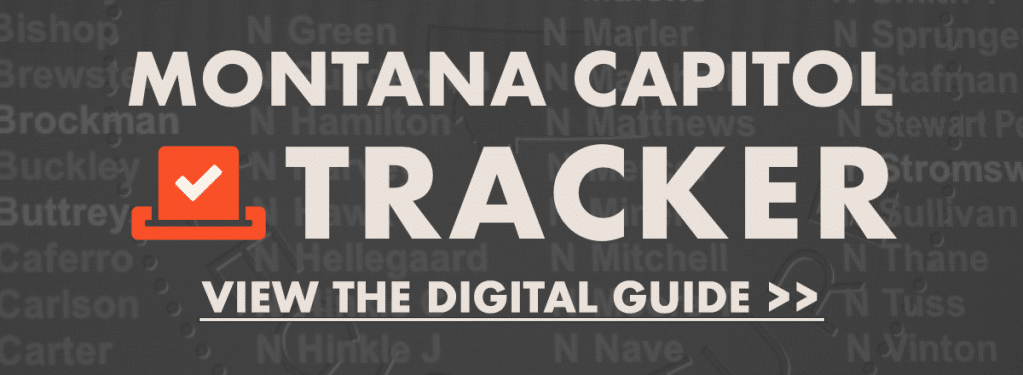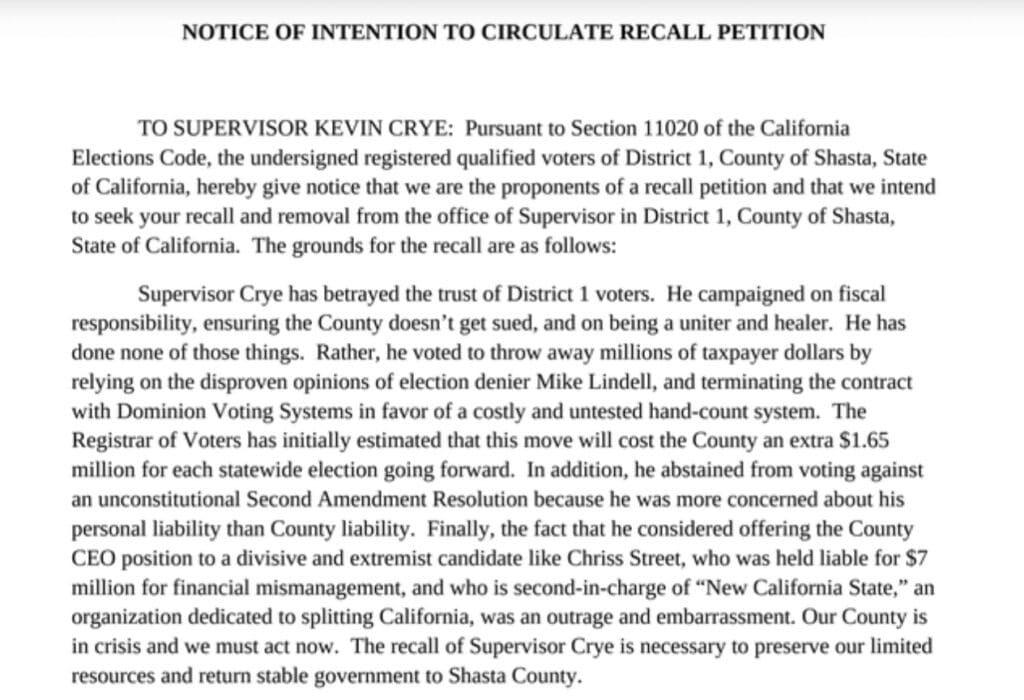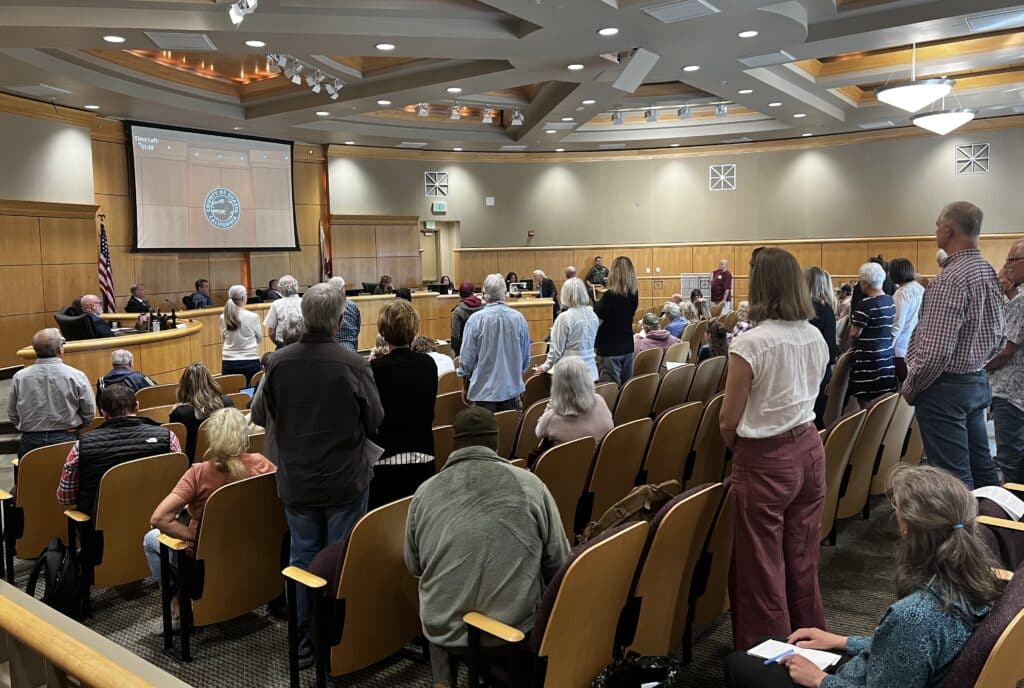House Republicans bar Democratic Rep. Zooey Zephyr for breaching decorum
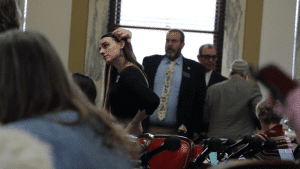
The Montana House of Representatives voted on party lines Wednesday to discipline transgender Democratic Rep. Zooey Zephyr by barring her from the chamber’s floor, anteroom and gallery for the remainder of the 68th Montana Legislature, which is scheduled to end no later than May 5.
House Majority Leader Sue Vinton, R-Billings, who brought the motion to bar Zephyr, said the Missoula representative will be allowed to vote remotely but will not be allowed to speak during floor debates. Zephyr’s punishment will not apply to her work in committees, which will continue unrestricted, though most legislative action occurs on the floor at this point in the session.
The disciplinary action follows a protest of House Speaker Matt Regier’s decision to not recognize Zephyr during floor debates that erupted in the House gallery Monday. During the disruption, when protesters chanted “let her speak” and police began handcuffing people and removing them from the gallery, Zephyr remained on the floor, holding her microphone in the air.
“Monday, this body witnessed one of its members participating in conduct that disrupted and disturbed the orderly proceedings of the body,” Vinton said in support of her motion. “This member did not accede to the order of the speaker to come to order and finally to clear the floor and instead encouraged the continuation of the disruption of this body, placing legislators, staff and even our pages at risk of harm.”
Montana Highway Patrol officers arrested seven protesters on misdemeanor trespassing charges as they cleared out the galley on Wednesday. A joint force of riot police from the city of Helena and the Lewis and Clark County Sheriff’s Office was also present. Police citations state the protesters were removed from the gallery and charged with trespassing for disrupting legislative proceedings, but document no violence or property damage.
Almost a week before the protest, Zephyr told lawmakers they would have blood on their hands for supporting Senate Bill 99, legislation that restricts gender-affirming care for transgender youth — a reference, she’s said, to increased suicide risks for people who don’t have access to such medical treatments. Zephyr is the first openly trans woman elected to the Montana Legislature, and Republicans have brought multiple bills this session restricting and criminalizing transgender health care and expression.
Her remarks generated an immediate objection from Vinton and, later, a call from the hard-right Montana Freedom Caucus for Zephyr to be censured. In a Wednesday press release, the Freedom Caucus noted that it was the first to advocate consequences for Zephyr.
For several days after her remarks, Zephyr attempted to register to speak about bills before the House and Regier refused to recognize her, which is the speaker’s prerogative under House rules. Regier suggested he might recognize her again if she apologized, but Zephyr made it clear that wouldn’t happen.
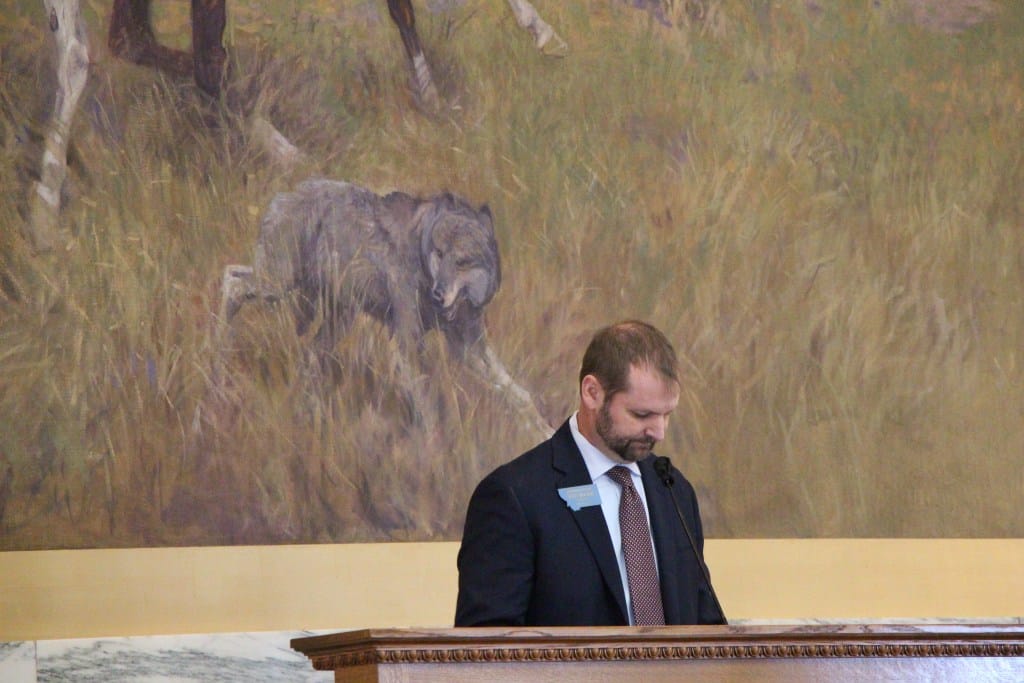
“I have lost friends to suicide this year,” she said last week. “I field the calls from multiple families who dealt with suicide attempts, with trans youth who have fled the state, people who have been attacked on the side of the road, because of legislation like this. I spoke with clarity and precision about the harm these bills do. And they say they want an apology, but what they really want is silence as they take away the rights of trans and queer Montanans.”
The conflict came to a head on Monday, with protesters’ chants drowning out Regier’s attempts to bring the House to order after a vote to affirm his ruling. Republican justifications of the motion to censure Zephyr Wednesday have focused mostly on Monday’s events, rather than her remarks last week.
Zephyr, whom the speaker allowed an opportunity to speak on the floor Wednesday under the procedure for disciplining a member, defended Monday’s protest as an expression of disenfranchisement by her 11,0000 constituents.
“And when I continued to not be recognized, what my constituents and my community did is they came here and said, ‘That is our voice in this body. Let her speak,’” Zephyr said on the floor. “And when the speaker gaveled down the people demanding that democracy work, demanding that their representative be heard, what he was doing was driving a nail in the coffin of democracy. But you cannot kill democracy that easily, and that is why they kept chanting ‘let her speak,’ and why I raised my microphone to amplify their voices.”
Republicans on Wednesday pursued the motion to censure Zephyr under a combination of legislative rules and the Montana Constitution, which says a chamber of the Legislature can “expel or punish a member for good cause shown with the concurrence of two-thirds of all its members.”
Rep. Casey Knudsen, R-Malta, who chairs the House Rules Committee, said on the floor Wednesday that Zephyr “violated the collective rights and safety of 99 other members of this body, our staff, our pages and the public,” which he identified as “good cause” for punishment.
Other lawmakers from either side of the aisle also rose to explain their votes Wednesday.
Rep. Jonathan Windy Boy, D-Box Elder, said his uncle always told him to keep one thing in mind: “No matter who we are, that we are all equal under the eyes of almighty. And always remember, when you point your finger at somebody, look how many are pointing back.”
Windy Boy, whose first term in the Legislature was in 2003, said he’s seen lawmakers nearly come to blows on the floor with no consequence. He recalled an incident in 2013 when then-Senate President Jeff Essmann, R-Billings, refused to recognize Senate Minority Leader Jon Sesso, D-Butte. Democrats pounded their desks with coffee cups and other items in protest.
“We got up and we hit the desks, we almost got charged for messing up the state’s property,” Windy Boy said. “Why weren’t we disciplined at that time? We should have. I would have went to jail, and I would have been found guilty. We’re picking one person in this body for something she believes is right.”
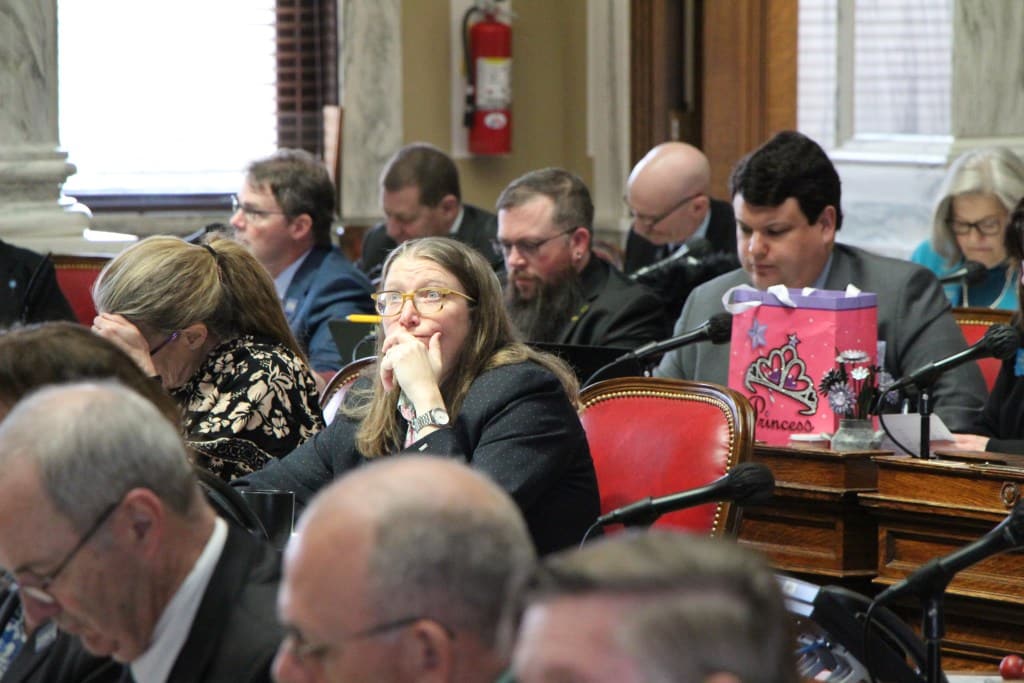
Two Republicans who spoke — Knudsen and Hamilton Rep. David Bedey — had previously voted against upholding Regier’s decision not to recognize Zephyr, but showed an apparent change of heart following Monday’s protest.
“The behavior of [Zephyr] has been in the news for over a week,” Bedey said. “And I must admit [that] opinions concerning her prior utterances vary, even within my caucus. But today we’re not here to pass judgment on what might have been said or done before this past Monday, but rather to consider the specific actions that were taken on a specific day.”
Zephyr, he said, could have chosen to leave the floor with other lawmakers or attempted to “calm the crowd.”
A small gathering of protesters assembled outside the Capitol Wednesday. Legislative leadership preemptively closed both the House and Senate galleries, which the public is usually free to access to observe legislative proceedings.
The discipline imposed by the House Wednesday is likely unprecedented in the state’s modern history. In 1975, then-majority Democrats could not get adequate support for a motion to censure three Republican lawmakers regarding an alleged campaign practices violation. Before the ratification of the state’s 1972 Constitution — a time in Montana history when corruption was a fixture of the state’s political culture — there appear to have been several efforts to expel lawmakers, some successful. The first dates to 1897, when lawmakers voted to expel Martin Buckley of Jefferson County.
Regier, in a press conference following the House’s vote Wednesday, said restricting Zephyr from the floor is necessary to ensure the safety of the body and to maintain decorum.
“We’ve had multiple breaches of decorum,” Regier said. “We do every session, we have people from both sides of the aisle … that breach decorum” and they usually apologize and say they’ll stay within the rules moving forward. “We’re not going to treat one representative differently from the other 99,” he added.
Wednesday marked the second consecutive day in which the House did not vote on any legislation on second reading — the main hurdle bills face in each chamber. On Tuesday, Regier canceled the House floor session with no explanation. On Wednesday, the House adjourned shortly after the motion to punish Zephyr passed.
House Minority Leader Kim Abbott, D-Helena, on Wednesday defended Zephyr and criticized the “opportunity cost” of the motion to restrict Zephyr’s participation with so few days left in the session. The Montana Constitution caps the length of regular legislative sessions at 90 legislative days.
“We don’t have a state budget,” Abbott said on the floor. “We don’t have a plan for housing. We don’t have a plan for childcare. We don’t have a plan for permanent property tax relief. We don’t have a plan for mental health. We don’t have a plan for provider rates. And today we’re on this floor debating this motion and hopefully we can get back to work. I sure hope so.”
She described her vote against the motion as a vote supporting constitutional principles.
“You know what, I agree that you absolutely can do this — by rule, by the Constitution, by Mason’s [Manual of Legislative Procedure],” Abbott said on the floor. “But just because you can do it does not mean that’s the right choice.”
Mara Silvers contributed reporting.
The post House Republicans bar Democratic Rep. Zooey Zephyr for breaching decorum appeared first on Montana Free Press.
